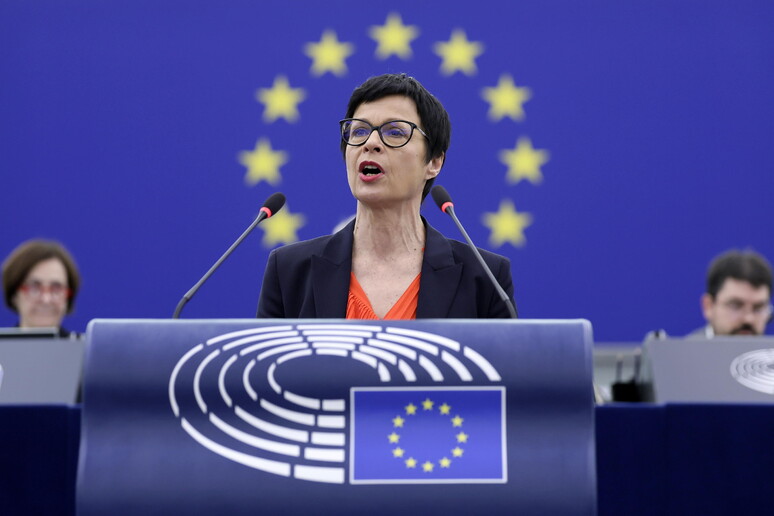The European Commissioner for
Enlargement, Marta Kos, said a new wave of EU enlargement by
2030 is a "very realistic perspective", not only for countries
like Albania and Montenegro - currently considered frontrunners
in the accession process - but also for Moldova and Ukraine.
In an interview with the European Newsroom (enr) published on
Wednesday, Kos said she hoped Moldova and Ukraine can open the
first cluster of negotiations still during the Polish Presidency
of the Council of the European Union, which runs until the end
of June 2025.
In addition, she was optimistic that there will be a solution to
Hungary's veto on Kyiv's accession over the treatment of the
Hungarian minority in Ukraine.
While Ukraine and Moldova are making rapid progress towards EU
membership, countries in the Western Balkans have been waiting
for decades.
North Macedonia was one of the first states of the former
Yugoslavia to embark on the path of European integration, but
due to internal problems and even more so due to blockades by
neighboring member states, it is still at the beginning.
The country's government is seeking guarantees that there will
be no more blockades due to bilateral issues. Kos said she
understands the frustrations, but did not give such guarantees.
In comparison, Kos underlined that negotiations with Montenegro
could be closed by the end of 2026, while Albania aims to
complete negotiations by 2027.
The EU also remains committed to Bosnia and Herzegovina, but EU
officials are increasingly expressing concerns over internal
political blockades that are halting reforms and threatening the
country's future on the European path.
"I would be probably the most happy person in the world when we
will be able to start negotiating with Bosnia. They really
deserve it, the people of Bosnia deserve this", said Kos, adding
that it is essential for domestic authorities to take
responsibility.
Kos also called on Serbia's incoming new government - which has
yet to be confirmed - to be "pro-European and pro-reform" in
order to advance the accession process. She announced plans to
visit Belgrade at the end of April.
EU accession remains "merit-based"
Asked whether it was possible to ensure a balanced approach in
the enlargement policy towards the Western Balkans on the one
hand, and Ukraine and Moldova on the other, Kos emphasised that
it is first and foremost a "merit-based" process.
Kos stressed no country would be left behind. "We are strongly
committed to bring them into the European Union. But of course,
we will stick to the merits."
Every step in the enlargement process requires the consensus of
all member states, and for each candidate country in the
accession process, 150 unanimous decisions are needed.
According to Kos, currently 14 member states are in favor of
abolishing consensus and moving to qualified majority
decision-making, but the problem is that even this change
requires consensus.
"We will see if there could be more soon," said Kos.
(by enr with AFP, ANSA, APA, ATA, EFE, Europa Press, FENA, HINA,
Lusa, MIA, Ritzau, STA, TASR, Tanjug, UKRINFORM).
ALL RIGHTS RESERVED © Copyright ANSA











